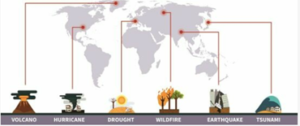Trauma can be debilitating, consuming, and have significant detrimental effects on the psychological, social and emotional well-being of an individual.
Trauma is a lasting emotional response to a distressing event. It affects our ability to regulate emotions, navigate relationships, and threatens our sense of safety and self.

Traumatic events
Although trauma, broadly speaking, cannot be specifically measured, there are categories of events that have been identified as traumatic. These include:
1. Natural or man-made disasters, such as an earthquake, fire, or flood.
2. Traumatic grief or separation, such as the death of a parent, sibling, child, or caregiver.
3. Childhood neglect, where the parent fails to provide physical, emotional, medical or educational provisions.
4. Sexual abuse or assault, including coercive contact and exploitation.
5. Physical abuse or assault, where pain is inflicted either by hand or by weapon.
6. Emotional or psychological abuse, resulting in cognitive or mental disturbance.
7. School-related violence, such as bullying, the suicide of a classmate, or class shootings.
8. System-induced trauma, where a child is removed from their home, separated from siblings, or experiences multiple foster placements.
9. War, terrorism, or political violence, either as a witness or a victim.
10. Exposure to community violence, including gang crime or being the victim of assault or burglary.

Trauma informed practice training
Trauma informed practice training is an essential tool for those who provide care and support to trauma victims. Gaining the skills needed for sensitively identifying and responding to people and an awareness of how trauma affects lives are just some of the benefits of trauma informed practice training.
Having the skills required to assist those who suffer from trauma is a powerful tool in helping them regain their sense of autonomy and self.
